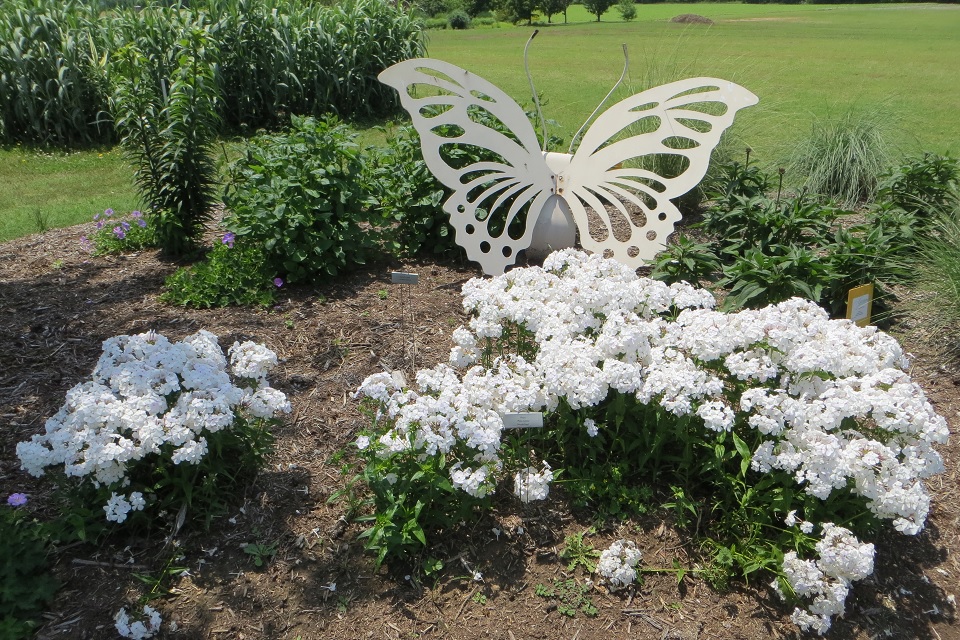
Bountiful Blooms Make This Perennial a Top Performer
Submitted by Jason Reeves, research horticulturist, the University of Tennessee Gardens, Jackson
‘Minnie Pearl’ phlox has quickly risen to the top of the perennial world for its bountiful floral display and mildew-free foliage. It’s lavish floral parade beings in late April to early May and lasts for 4-6 weeks. The glowing white flowers, which are attractive to butterflies and hummingbirds, are produced in 3-inch clusters atop stems adorned with narrow glossy green leaves. We have found in the UT Gardens, Jackson, when grown in rich garden soil, ‘Minnie Pearl’ will flower a second time on its own, but if cut back, it will often flower a third time.
‘Minnie Pearl’ makes a good cut flower and in the garden works with most other perennials in the front of the border. Siberian Iris, red hot poker (Kniphofia), Mexican feather grass and Coreopsis are just a few good companion plants.
Phlox ‘Minnie Pearl’ grows 12 inches –18 inches tall with the clump expanding by underground roots making a 2-ft-wide patch in three years. It is best when grown in full sun to part shade in average to organically enriched garden soil. Although it is drought tolerant once established, ‘Minnie Pearl performs best in moist, well-drained soil and appreciates supplemental water during periods of drought. It is hardy to zone 4.
This native perennial is a naturally occurring hybrid between Phlox maculata and possibly Phlox glaberrima, and was found along a roadside in Mississippi by plantswoman Karen Partlow. It eventually made its way to nurseryman Tony Avent who named and commercially introduced it in 2003. ‘Minnie Pearl’ can be found in the UT Gardens, Jackson, growing in one of the perennial berms. It has recently been added to the UT Gardens, Knoxville.
Just like the Grand Ole Opry character Minnie Pearl, this plant is chockfull of life and charisma and will make a captivating addition to any garden.
The University of Tennessee Gardens located in Knoxville, Crossville and Jackson are part of the UT Institute of Agriculture. Designated as the official botanical garden for the State of Tennessee, the gardens’ mission is to foster appreciation, education and stewardship of plants through garden displays, educational programs and research trials. The gardens are open during all seasons and free to the public except during designated special events. For more information see utgardens.tennessee.edu.
Contact:
Patricia McDaniels, UTIA Marketing and Communications, 615-835-4570